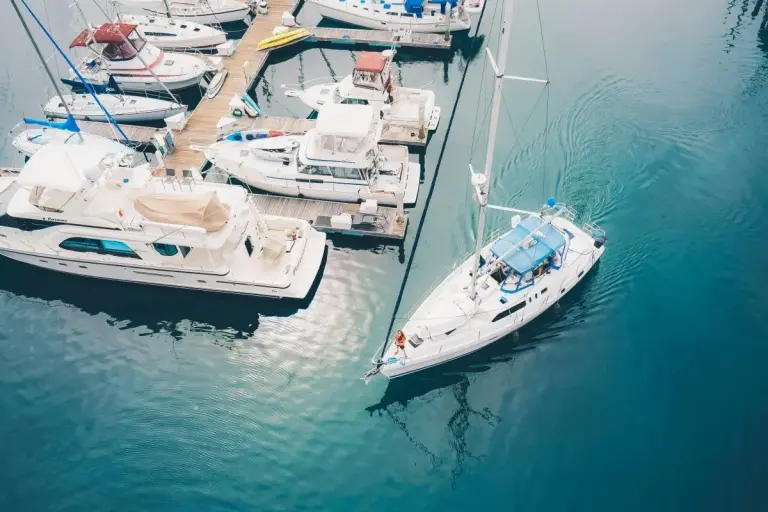In a significant decision underscoring the strict regulatory framework governing Panama’s strategic waterways, the country’s Maritime Authority (Autoridad Marítima de Panamá or AMP) has formally denied a maritime concession request for a key area on the Amador Causeway. This move highlights the critical importance of inter-institutional compliance, particularly with the Panama Canal‘s operational requirements, for any development project. The rejected proposal, submitted by the company Perico Island Maritimal Service, S.A., sought rights to a 4,727.21 m² marine and land access area adjacent to the National Aeronaval Service base on Perico Island.
The Core Reason for the Concession Denial
The primary reason for the denial was the company’s failure to secure a crucial document known as the Permiso de Compatibilidad (Compatibility Permit). This permit is issued exclusively by the Panama Canal Authority (ACP). The AMP’s resolution, signed by Administrator Luis Roquebert Vanegas, was firm in its stance, stating that this permit is a non-negotiable prerequisite for advancing any concession process within zones under the jurisdiction or operational influence of the Panama Canal.
The company had initially applied for the concession in 2021 and was granted a provisional permit in 2023. However, without the final Compatibility Permit from the ACP, the project could not proceed further. This decision reinforces the layered autoridad and regulatory checks that are in place to protect Panama’s maritime and national interests.
Orderly Eviction and Upholding the Law
Following the formal denial, the AMP took decisive action to reclaim the area. On October 13, 2025, technical and legal personnel from the AMP, in coordination with the National Aeronaval Service, executed an eviction diligence on the area occupied by Perico Island Maritimal Service, S.A.
The AMP emphasized in an official communiqué that the operation was carried out in an orderly manner, ensuring full respect for due process and the principle of strict legality. This demonstrates the government’s commitment to enforcing its decisions while maintaining procedural integrity.
What is a Maritime Concession?
A maritime concession is a legal grant by the state that allows a private entity to use a specific area of the public maritime domain for a designated purpose, such as building a marina, port facility, or other commercial venture. These are not given lightly and are subject to rigorous environmental, strategic, and legal reviews.
Why is the Panama Canal Authority’s Permission So Vital?
The Panama Canal is not just a canal; it’s the lifeblood of the nacional economy and a critical node in global trade. The ACP’s Compatibility Permit ensures that any nearby development does not interfere with the Canal’s operations, navigation safety, water supply, or long-term expansion plans. With over 14,000 transits per year, the seamless operation of the Canal is paramount. A single incident or obstruction could have global repercussions, which is why this oversight is indispensable.
Broader Implications for Development in Panama
This case sets a powerful precedent for current and future developers in Panama. It sends a clear message that no project, regardless of its provisional status, can bypass the essential requirements set by key national institutions. The AMP has reiterated its commitment to the correct administration of the state’s maritime patrimony.
This incident is part of a broader pattern of Panama asserting stricter control over its strategic assets and real estate. As the country continues to develop its infrastructure and attract foreign investment, maintaining a balance between development and the protection of critical national interests remains a top priority. This aligns with wider governmental efforts, such as the ongoing Panam infrastructure push, which also emphasizes adherence to legal and regulatory standards.
Key Takeaways for Investors and Developers
For any company looking to invest in Panama’s maritime zones, this event offers several critical lessons:
- Due Diligence is Non-Negotiable: Understanding the full scope of required permits from all relevant authorities, including the AMP and ACP, is the first and most crucial step.
- Respect Inter-Institutional Requirements: The Compatibility Permit from the ACP is a mandatory hurdle for projects near the Canal’s area of influence, not a mere formality.
- Provisional Permits are Not Guarantees: A provisional grant does not ensure final approval. Projects must meet all final conditions to proceed.
According to the legal framework governing the Panama Canal Authority, the ACP has broad powers to regulate activities that could impact the waterway. Furthermore, as a global logistics hub, Panama’s regulatory bodies are aligned with international maritime standards set by organizations like the International Maritime Organization (IMO).
Conclusion: A Reinforced Commitment to Legal Order
The denial of the concession on the Amador Causeway is more than just a single project cancellation. It is a strong reaffirmation of Panama’s commitment to governing its valuable maritime territory with an unwavering adherence to the law. By enforcing these regulations, the AMP and ACP ensure that Panama’s economic development proceeds in a sustainable, secure, and legally sound manner, protecting the nation’s most vital assets for future generations.



